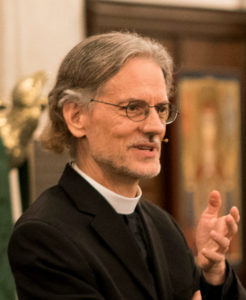IVF Extras
She was telling me about her friend, a married woman who, having found it impossible to conceive a child, had turned to IVF. Two embryos were implanted in her womb, but as they were developing problems arose, resulting in a highly dangerous pregnancy from which she could have died. Her friend refused to give up, however, and eventually gave birth, prematurely, to twin boys. The boys had a months-long NICU stay, their lungs maturing with the help of machines. Their traumatic birth was not without lingering challenges, but there had been fewer difficulties than once feared, and the children, now school-age, were thriving.
Her friend was carried through by prayer. She did not die; her children came to birth and survived. The doctors have warned her, however, not to undertake another such pregnancy again.
And there’s the rub. In her IVF process, as is customary, several embryos were created. Those that remain—the “leftovers”—are frozen. “I keep paying the monthly storage fees,” she says. Even though she sees no way ever to bring these embryos to birth, she can’t bear the thought of them being discarded, thrown away
Her friend, who was relating this story, asked me: “What should she do?”
It’s an awful, painful, tragic situation. And I do not know what she should do.
My mind did turn to a couple I knew who early on had learned of the possibility of embryo adoption and pursued it—their child must now be nearly a teenager. Such adoptions, however, amount to but a tiny fraction of the hundreds of thousands of embryos whose lives are on hold in storage. Should we encourage more couples to adopt embryos? Perhaps. It would help if the law were to consider embryos as children. But at present, I am told, embryos in storage are considered personal property, not children—they are not legally adopted but procured by contractual transfer.
The tragedy is inscribed in the law: An embryo in a storage facility is an item of property.
One wishes one could have avoided starting down this path. What if, instead of several embryos, the couple and their doctor had limited themselves to creating only such number as they intended to implant? There would be no extras in that case, no embryos parked in cold storage. Such a protocol might entail greater effort and additional risk should none of the embryos successfully implant and grow in the first attempt. And subsequent trials, if necessary, would certainly increase the cost of an undertaking that is already quite expensive. Nonetheless, it would avoid the hidden and emotionally painful cost occasioned by a future decision about disposal.
Pastorally, we would want persons wrestling with such a decision to know God’s love for them. That God is glad that they wanted to have children. That God shares their remorse over having been brought into a situation that is so awful. We would want them to know—as we want everyone always to know—that there is nothing we could ever do to separate us from the love of God.
Concretely, I do not know what the friend of my friend should do, save cling to God more closely.










